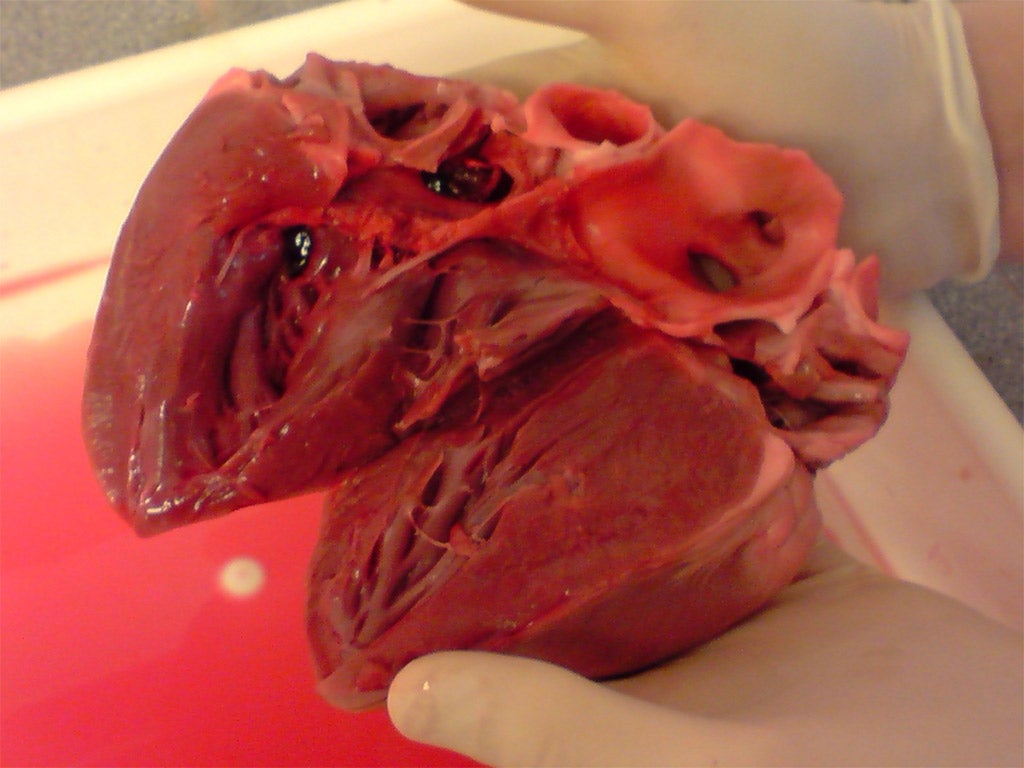Transplanted pig's heart survives in monkey for at least 51 days in new record
The heart was genetically modified to reduce the risk of the monkey's immune system attacking it

Your support helps us to tell the story
From reproductive rights to climate change to Big Tech, The Independent is on the ground when the story is developing. Whether it's investigating the financials of Elon Musk's pro-Trump PAC or producing our latest documentary, 'The A Word', which shines a light on the American women fighting for reproductive rights, we know how important it is to parse out the facts from the messaging.
At such a critical moment in US history, we need reporters on the ground. Your donation allows us to keep sending journalists to speak to both sides of the story.
The Independent is trusted by Americans across the entire political spectrum. And unlike many other quality news outlets, we choose not to lock Americans out of our reporting and analysis with paywalls. We believe quality journalism should be available to everyone, paid for by those who can afford it.
Your support makes all the difference.The prospect of humans being given transplanted hearts from other animals appeared to be a step closer after South Korean scientists reported they had successfully installed a pig’s heart in a monkey.
Researchers at the National Institute of Animal Science (NIAS) said the heart had been genetically modified to reduce the risk of being rejected by the crab-eating macaque.
It was still alive some 51 days after the procedure when the researchers reported their results, breaking the previous record of 43 days, according to a report by the Yonhap news agency.
The monkey was also given a cornea from the pig’s eye.
The pig, called Mideumi, was genetically engineered in 2010 to produce an excessive amount of a membrane protein that helps reduce the risk of the organ being rejected after transplantation.
Currently transplant patients have to take immune-suppressing drugs to stop their natural defence mechanisms from attacking the foreign body.
Finding a way to avoid this response would be a major breakthrough.
The NIAS said it also planned to work with a bioengineering firm to transplant pancreatic tissue from pigs to monkeys in an effort to find new ways to treat diabetes.
Pigs’ hearts, seen as a close match to the human version, have also been transplanted into other animals.
One was kept healthy and beating inside the abdomen of a baboon for nearly three years.
The baboon still had its original heart and did not need the pig’s one, but the fact it was able to survive for so long without being destroyed by its immune system was a significant accomplishment for the researchers.
Muhammad Mohiuddin, a cardiac transplant surgeon at National Heart, Lung, and Blood Institute in Bethesda, US, who lead the baboon study, told Science magazine: “People used to think that this was just some wild experiment and it has no implications.
“I think now we’re all learning that xenotransplantation in humans can actually happen.”
Join our commenting forum
Join thought-provoking conversations, follow other Independent readers and see their replies
0Comments